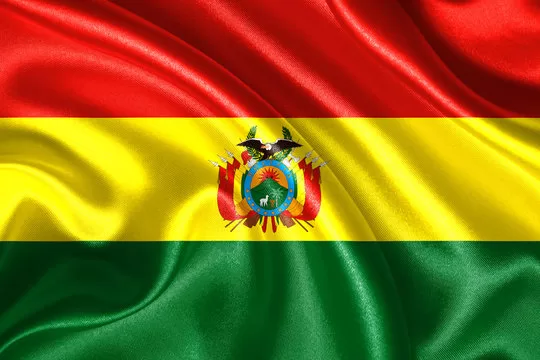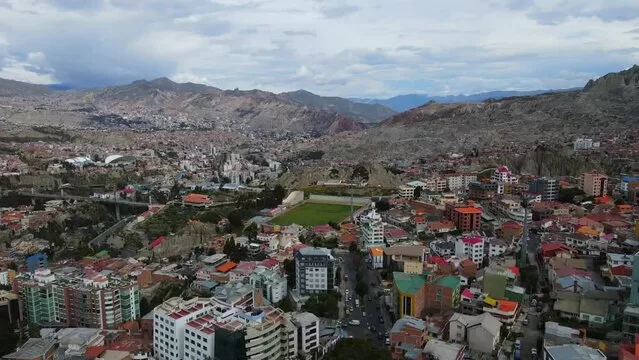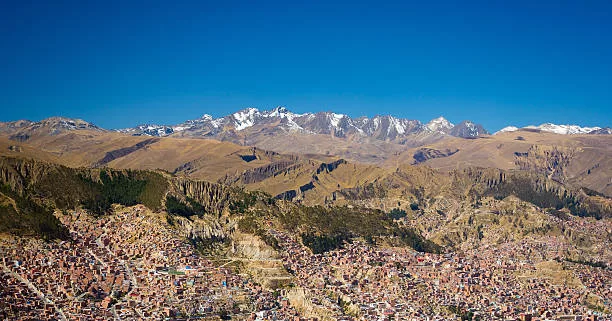Bolivia Country Report

Bolivia is a landlocked country in South America, bordered by Brazil, Paraguay, Argentina, Chile, and Peru. It has a diverse geography, ranging from the high peaks of the Andes Mountains to the lowlands of the Amazon rainforest. One of the most famous attractions in Bolivia is the Salar de Uyuni, the world’s largest salt flat. Bolivia is also known for its rich indigenous culture and traditions. The country has a significant indigenous population, and their vibrant customs and beliefs are deeply rooted in Bolivian society. The capital city, La Paz, sits at a high altitude and offers breathtaking views of the surrounding mountains. In terms of politics, Bolivia has a presidential republic system of government. The President of Bolivia is both the head of state and the head of government. The country has made efforts to promote social inclusion and indigenous rights in recent years. Bolivia’s economy is diverse, with sectors such as mining, agriculture, and tourism playing significant roles. The country is rich in natural resources, including minerals like tin and lithium.
Last updated: April 7, 2022
Security
Bolivia is generally considered safe for travelers. However, like any other destination, it’s always a good idea to take precautions. Be aware of your surroundings, especially in crowded areas, and keep an eye on your belongings. It’s also recommended to avoid walking alone at night and to use reliable transportation options. If you’re planning to visit Bolivia, it’s a good idea to stay informed about the current situation and follow any travel advisories or guidelines provided by your government or trusted sources. Additionally, it’s always helpful to have travel insurance that covers any unexpected situations.
Last updated: April 20, 2022
Infrastructure

Bolivia has been making significant efforts to improve its infrastructure. They have been investing in the construction and maintenance of roads, bridges, and highways to enhance transportation connectivity across the country. This development is crucial for improving access to remote areas and promoting economic growth. In addition to transportation, Bolivia has been focusing on expanding and upgrading its energy infrastructure. They are investing in renewable energy sources like hydroelectric power plants to ensure a sustainable energy supply for the population.
International airlines are considered safe for travel to and from Bolivia.
Basic services such as available water, electricity and fuel are generally reliable only in cities and even then may be inadequate.
Bolivia’s road network is one of the toughest in Latin America. Only a few major highways are paved, and city centers are often connected by a single road.
This country is not considered a sponsor or target of cyber attacks. Defenses against such attacks are likely to be very weak.
Last updated: April 20, 2022
Environment

When it comes to the environment in Bhutan, it’s worth mentioning that Bhutan is known for its commitment to environmental conservation. The country has a unique approach called “Gross National Happiness,” which emphasizes sustainable development and the well-being of its people, including the preservation of the environment. Bhutan is known for its rich biodiversity, pristine forests, and efforts to maintain carbon neutrality. They have also set a goal to remain carbon negative by 2030. It’s inspiring to see their dedication to protecting the environment!
Bolivia’s climate varies widely due to its diverse geography. Extractive industries, whether legal or illegal, such as clearing land for agriculture or timber, have environmental risks. Earthquakes occur frequently in Bolivia. Most of them are moderate, but some are severe. The country is not particularly vulnerable to storms, but storms are based on rain or snow, depending on the altitude. Floods and landslides are common during the rainy season from October to April, especially in mountainous areas.
Last updated: December 6, 2022
Health and Medical
Like many countries, Bolivia faces various health challenges, including infectious diseases, limited access to healthcare in remote areas, and disparities in healthcare services. However, the Bolivian government has been working to improve healthcare infrastructure and expand access to medical services, especially in rural areas. Efforts are also being made to address issues such as maternal and child health, vaccination programs, and the prevention and control of diseases
Mosquito-borne diseases, including yellow fever, are a major epidemiological concern in this country. Big cities like La Paz and Santa Cruz have good quality medical facilities. In this case, most rural areas will have only basic facilities. All major medicines are available in major cities. Drug availability varies in sparsely populated areas. Tap water is not considered safe for drinking unless specifically directed to do so.
Last updated: September 7, 2022
Political
Bolivia is a country with a rich political history and a diverse political landscape. It has experienced various political changes and transitions over the years. One significant aspect of Bolivian politics is the indigenous representation and empowerment, which has been a key focus in recent years. Evo Morales, the first indigenous president, served for a long period and implemented policies aimed at addressing social and economic inequalities. However, it’s important to note that political dynamics can be complex and ever-evolving.
Last updated: March 18, 2022















